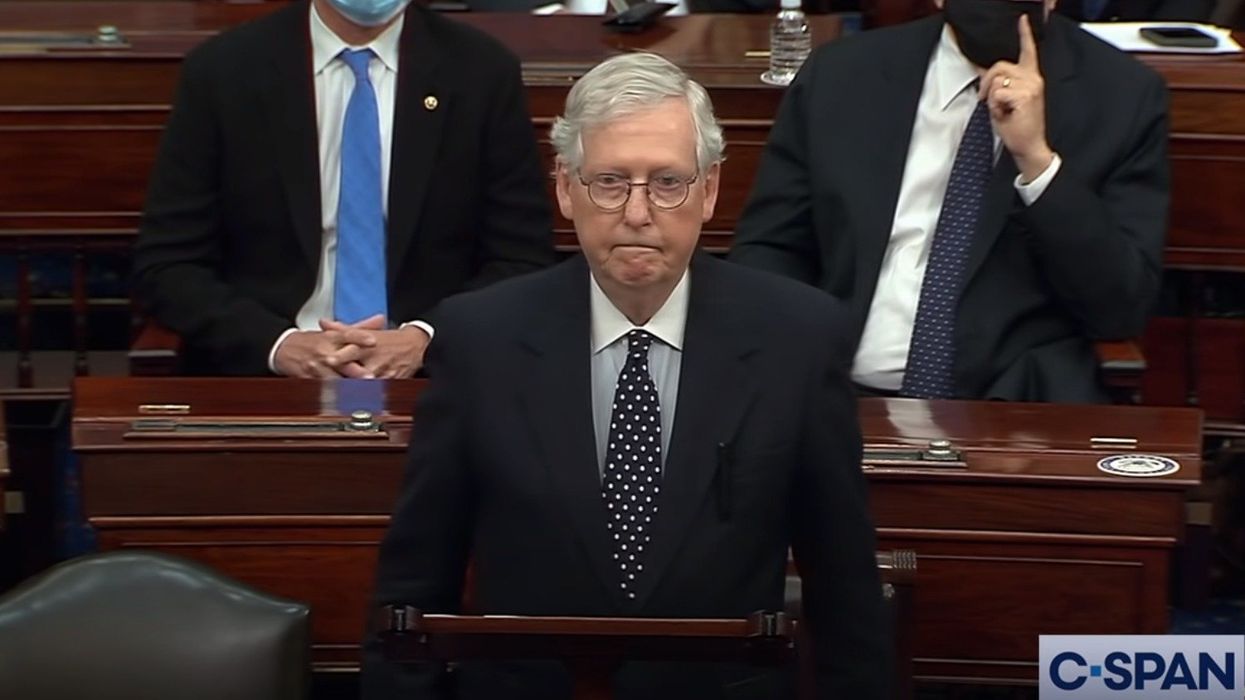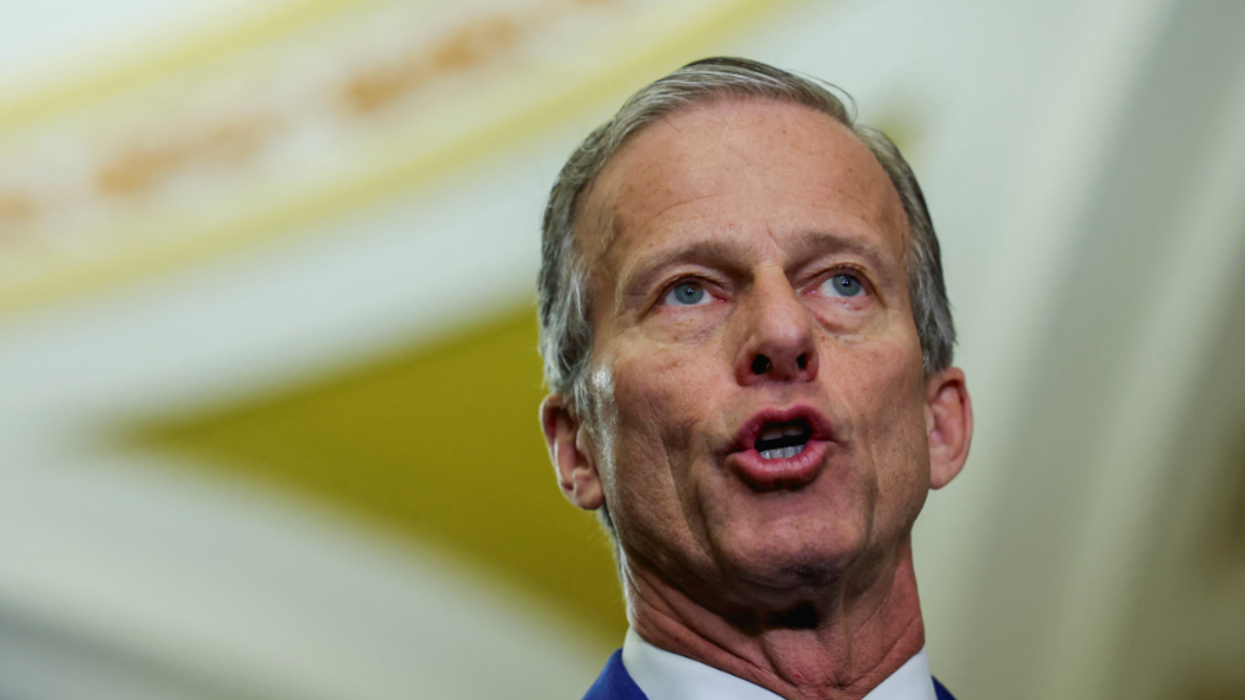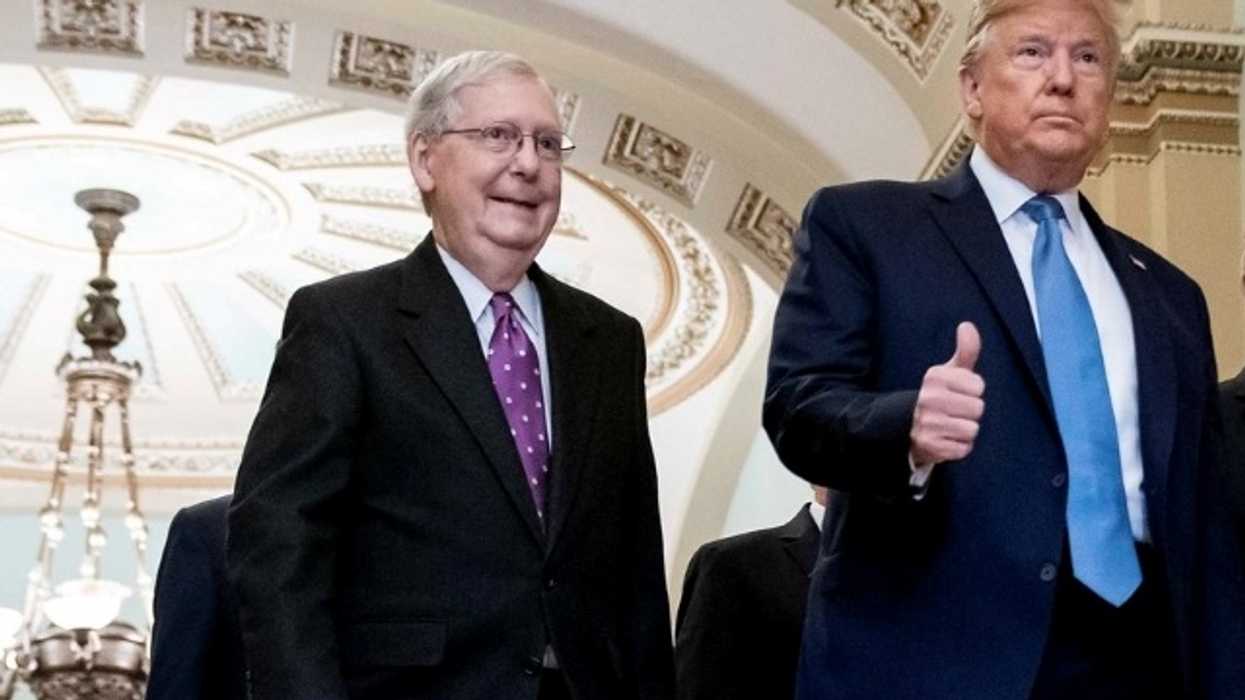On a recent CNN panel, a Republican strategist cited a random article from last June about liberals having established a "resistance" to a Trump second term.
"Can we just have a couple of years of peace for the Republicans and President Trump to do what they promised to do because the American people are clearly asking for it?" Scott Jennings said in a beseeching voice.
A Democratic panelist shot back with "that's rich" as another noted the outrage in 2016, when Republican Senate Majority Leader Mitch McConnell refused to let the Senate even hold hearings on Barack Obama's Supreme Court nominee, Merrick Garland. McConnell insisted that the next president should make the pick when the next presidential election was almost eight months in the future.
Jennings further complained that Democrats are "working overtime to prevent the duly elected government from doing anything."
It happens that Democrats in Congress were also "duly elected." They have no obligation to prostrate themselves before Donald Trump, despite his convincing win.
But let me volunteer as referee. Democrats should pick and choose their battles. They should cooperate on matters of mutual interest. Obstructing for obstruction's sake would be bad for the party and bad for America.
They should not follow McConnell's toxic playbook from 2010, when he said, "The single most important thing we want to achieve is for President Obama to be a one-term president." That is, he wanted to block legislation for purely partisan reasons.
Complicating matters, the president-elect has a solid record of going back on his promises. As a candidate in 2016, Trump vowed to replace the Affordable Care Act, aka Obamacare, with "something terrific." He came out with nothing terrific or even acceptable. He pushed Congress to kill it.
In the recent campaign, Trump said that Obamacare "sort of sucks" but repeated that he wouldn't end it. Republican House Speaker Mike Johnson let the cat out, saying "No Obamacare" and adding that there would be "massive" health care changes if Trump wins.
This time there won't be a John McCain to save the program with his deciding vote. And since Trump presumably wouldn't be running for president again, he would lack a political motive to protect the popular health benefit.
What he would do to the ACA is unclear. He might try a second time to simply bury the thing. Or he might get Congress to cannibalize it — to sharply reduce the subsidies but leave a near-corpse standing that Republicans could call "Obamacare."
There's about a 100 percent chance that he would not enhance the benefit. The expanded subsidies put into place during the pandemic are set to expire next year. If that happens, over 90 percent of the ACA exchange members would see their costs go up, according to KFF, a health care research group.
The money on Wall Street has voiced its opinion. "For firms offering plans in the exchanges created by the Affordable Care Act ... as well as Medicaid plans, it (a second Trump term) could be bad news," according to The Wall Street Journal.
For example, the stock of Oscar Health, which gets most of its revenues from the Obamacare marketplaces, immediately fell eight percent the morning after the election. Shares of Centene, a major Medicaid operator, were down five percent.
If Democrats want to be truly diabolical, they'll step aside and let Republicans end the program that covers some 45 million Americans. Alternatively, they could come to the rescue and force "Republicans and Trump to do what they promised to do."
The Democrats' power to greatly influence the outcome, however, depends on whether they ultimately win a House majority. Right now, that doesn't look good.
We have interesting times ahead.
Froma Harrop has worked for Reuters, The New York Times News Service and the Providence Journal. She has written for such diverse publications as The New York Times, Harper’s Bazaar and Institutional Investor.
Reprinted with permission from Creators.











